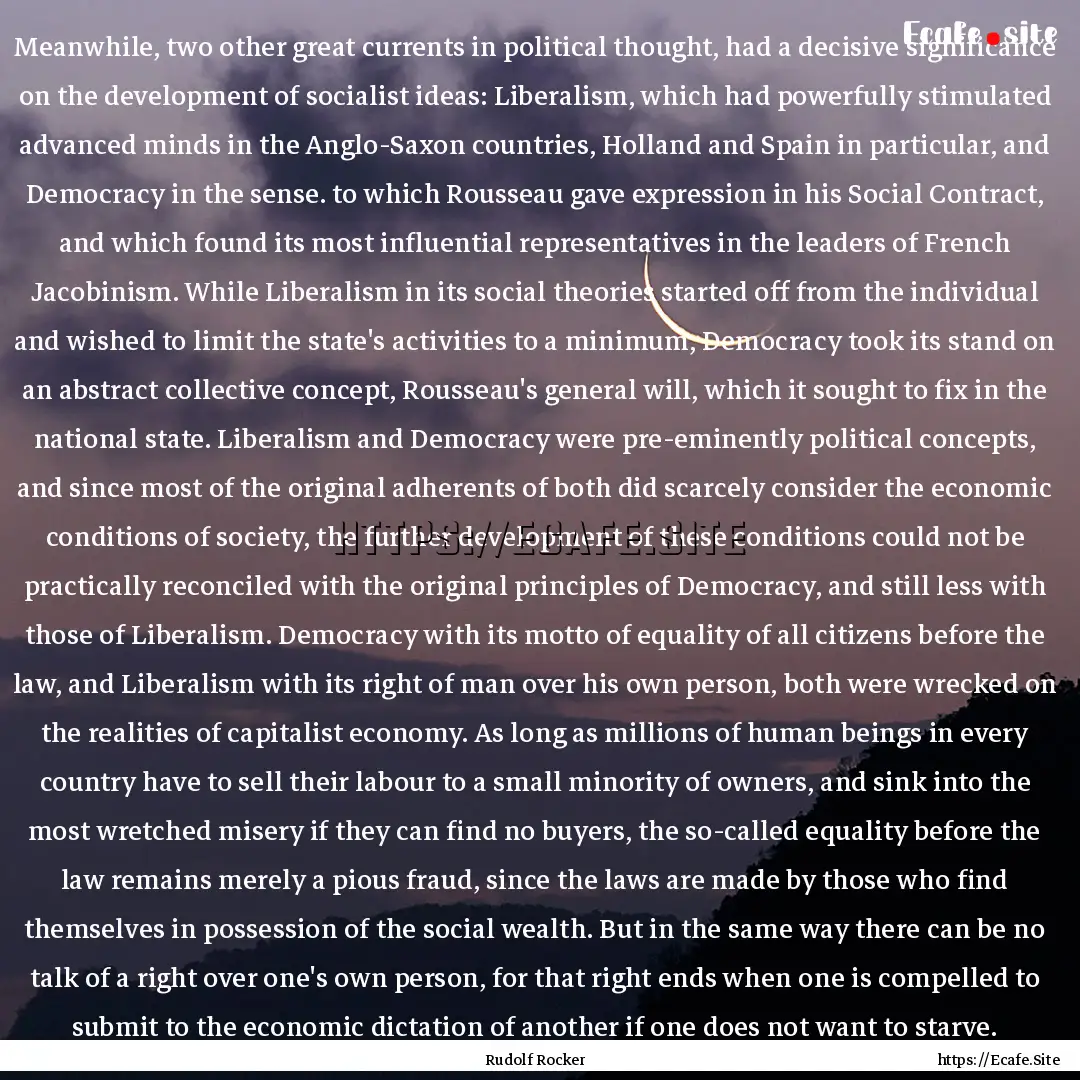
Report, if you have a problem with this page“ Meanwhile, two other great currents in political thought, had a decisive significance on the development of socialist ideas: Liberalism, which had powerfully stimulated advanced minds in the Anglo-Saxon countries, Holland and Spain in particular, and Democracy in the sense. to which Rousseau gave expression in his Social Contract, and which found its most influential representatives in the leaders of French Jacobinism. While Liberalism in its social theories started off from the individual and wished to limit the state's activities to a minimum, Democracy took its stand on an abstract collective concept, Rousseau's general will, which it sought to fix in the national state. Liberalism and Democracy were pre-eminently political concepts, and since most of the original adherents of both did scarcely consider the economic conditions of society, the further development of these conditions could not be practically reconciled with the original principles of Democracy, and still less with those of Liberalism. Democracy with its motto of equality of all citizens before the law, and Liberalism with its right of man over his own person, both were wrecked on the realities of capitalist economy. As long as millions of human beings in every country have to sell their labour to a small minority of owners, and sink into the most wretched misery if they can find no buyers, the so-called equality before the law remains merely a pious fraud, since the laws are made by those who find themselves in possession of the social wealth. But in the same way there can be no talk of a right over one's own person, for that right ends when one is compelled to submit to the economic dictation of another if one does not want to starve. ”

Rudolf Rocker
From : Anarchism and Anarcho-Syndicalism



